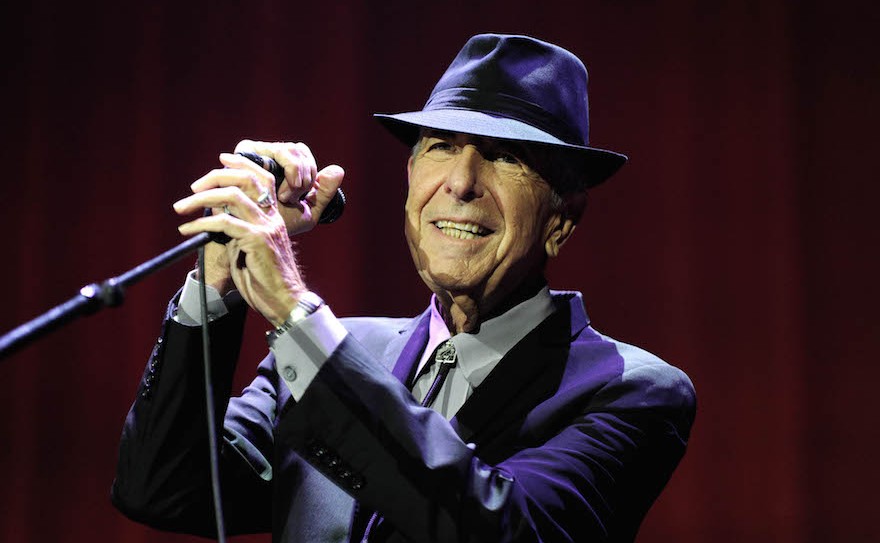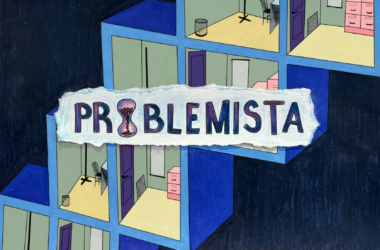“Poetry is just the evidence of life. If your life is burning well, poetry is just the ash.” Leonard Cohen’s words resonate potently in the wake of his passing last Monday at the age of 82. He was one of the great artists of the 20th century and leaves behind a prolific legacy of poetry that is transcendent in both beauty and insight, novels that provoke moral urgency and self-reflection, and timeless songs of sorrow and redemption.
Cohen’s trajectory into a six-decade artistic career began at McGill as an undergraduate student studying English Literature. His first volume of poetry, Let Us Compare Mythologies, consisted largely of poems Cohen wrote while at McGill and was published in 1956 as the inaugural volume of the McGill Poetry Series. This early work registers the formation of topics that would come to characterize Cohen’s art, including meditations on spirituality, sexuality, war, depression, love, and loss.
In his lifetime Cohen published two novels and eleven books of poetry, accompanied by over a dozen albums. His music emerged during the 60s and 70s within the bohemian folk rock scene in New York City, and became distinguishable by its darkness. Unlike many artists of his generation, Cohen experienced artistic growth into his 80s. His work flourished over the course of his long life; from “Bird on a Wire” in 1968, to “Hallelujah” in 1984, to “You Want it Darker,” his final album which was released this past October.
Leonard Cohen envisioned a unique audience for his work, which he defined in a letter to his publisher as, “inner-directed adolescents, lovers in all degrees of anguish, disappointed Platonists, pornography-peepers, hair-handed monks and Popists.” However, his bold artistic spirit undeniably reached many more; Cohen was inducted in the Rock and Roll Hall of Fame in 2008, received a Grammy Lifetime Achievement Award in 2010, and was awarded the Glenn Gould Prize in 2011.
His history in Montreal and the influence of the city in his work is a source of Canadian pride. Cohen’s death has spurred the community to come together. Following the announcement of his passing, fans have left paintings, candles, letters, musical instruments, flowers, and even bagels on the doorstep of Cohen’s home in Montreal’s Plateau area. A vigil for the artist gathered outside his home this past Saturday to celebrate Cohen’s life and sing his songs together. All of this exemplifies the way in which his work, in all its forms, touched countless lives.
Reflecting the grace with which he lived his life, Cohen left the world with a sense of closure. Following his triumphant world tour in 2007, Cohen noted that the experience “brought his career to the full circle that he hadn’t expected.” In his final record, which opens with the title track, “You Want it Darker,” Cohen sings: “Hineni Hineni / I’m ready my Lord.” Hineni is Hebrew for “Here I am,” resembling a return to his Jewish roots and marking an announcement of readiness—it is a self-eulogy expressing his spiritual devotion. Furthermore, in late July 2016, after receiving word that his muse and former partner, Marianne, was on the brink of death, Cohen said “So Long, Marianne,” once more in a letter to her which gestures to a knowingness that his time was coming soon as well:
“Well Marianne, it’s come to this time when we are really so old and our bodies are falling apart and I think I will follow you very soon. Know that I am so close behind you that if you stretch out your hand, I think you can reach mine.”
“There is something strangely comforting about his death—about the way of this death,” noted Professor Brian Trehearne, who teaches the course on Cohen in the English Literature Department. He departed this life with the grace and elegance that characterized his artistic pursuits. Cohen’s manager Robert Kory saw his legacy as one of, “insight, inspiration and healing for generations to come.”
“Now I greet you from the other side of sorrow and despair, with a love so vast / And so shattered, it will reach you everywhere.” Cohen’s haunting “Heart With No Companion” lyrics ring as we bid farewell to the iconic artist. Though he will be greatly missed, his voice will endure.









